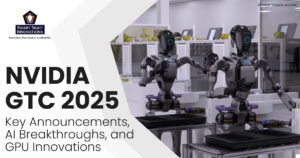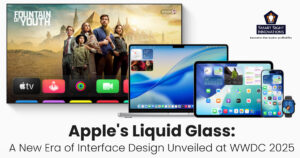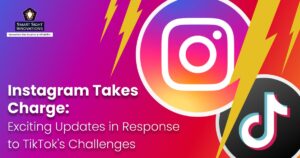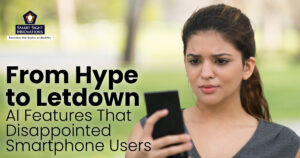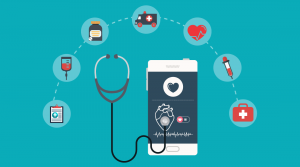 The mobile healthcare app industry has witnessed unprecedented growth due to the increase in internet users and smart devices. Phone applications for medication history, electronic health records, hospital and doctors’ information, are some of the most commonly used ones. Specially designed chat applications help connect patients with doctors anonymously. Users can discuss various health issues without identifying themselves or their current location. Most importantly, smartphone applications have proved to be a crucial tool for governments worldwide during the COVID-19 pandemic. Let’s take a look at how mobile apps are helping the overall healthcare industry.
The mobile healthcare app industry has witnessed unprecedented growth due to the increase in internet users and smart devices. Phone applications for medication history, electronic health records, hospital and doctors’ information, are some of the most commonly used ones. Specially designed chat applications help connect patients with doctors anonymously. Users can discuss various health issues without identifying themselves or their current location. Most importantly, smartphone applications have proved to be a crucial tool for governments worldwide during the COVID-19 pandemic. Let’s take a look at how mobile apps are helping the overall healthcare industry.
People living in remote areas are immensely benefiting due to mobile health apps
Until the last decade, the adoption of medical phone apps in rural areas remained limited in most countries. However, the introduction of affordable 4G internet in developing countries has helped improve the adaptation of apps and the delivery of primary healthcare services during the last five years.
From buying medicines online, fixing an appointment with the doctor, to booking an appointment for the collection of blood samples from home, there’s a lot that medical apps can provide. Thanks to these software solutions, doctors sitting in metro cities can monitor the health status of patients located in far-flung rural areas of the country. On the other hand, patients do not need to travel and visit city areas to meet their doctors.
Healthcare workers can send push notifications as well as text messages to patients and remind them about their medication schedule. Sharing healthcare tips with patients was never so easy.
Labs use various features in medicare apps to share test reports with patients online. Users can find an appropriate specialist with adequate experience within minutes, share their medical reports, and schedule a quick appointment with the nearest one. Physicians can plan a video chat with the patient and discuss his/her health issues for creating the best possible treatment plan. Doctors’ fees can also be paid online.
Individuals living in rural areas can easily purchase medicines online and get them delivered at their doorstep, even during the COVID-19 pandemic.
IoT devices taking healthcare apps to the next level
Remote monitoring of patients has become easier than ever before due to IoT wearables and wireless instruments. Elderly patients get the personalized attention that they need. On the other hand, a limited number of nursing staff can monitor the health conditions of multiple patients while at their desk.
Internet of Things technology is helping healthcare professionals to track the health conditions of elderly patients continually. Gadgets like wireless glucometer, fitness bands, heart rate, and blood pressure monitoring cuffs, as well as other devices, integrate with smartphone software. This allows remotely working professionals to monitor blood pressure variations, heartbeat, sleeping patterns, calorie count, etc.
Elderly patients living in nursing homes, senior living homes often live alone. Earlier, healthcare providers had no other option but to visit their homes or call them every day to ensure their wellness. Thanks to IoT powered wearables, beds, and patient monitoring technology, healthcare workers automatically get alerts if there are any changes in the concerned person’s routine activities or health status.
Doctors and nurses can access patient data from IoT devices and ensure he or she is adhering to treatment plans. They can also track the status of oxygen pumps, wheelchairs, as well as other medical equipment, and deploy medical staff in case of an emergency. Firms that provide IoT application development services have witnessed a drastic rise in the demand for medicare apps.
Healthcare apps allow individuals to self-monitor their health
Fitness tracking-apps, as well as health wearables, have empowered patients to monitor their health continually. They can achieve better results with self-monitoring. The powerful gizmos in the form of apps and wearables make people more committed to exercises and other activities. Monitoring heartbeat, diabetes, calorie consumption, and exercise routine helps in keeping people motivated. They can make more conscious decisions to avoid diseases and health issues.
Apps can help in cutting down the risk of the wrong diagnosis
Several studies have pointed out the significance of data retrieved from smartphone software for better diagnosis. The most highlighted research work is from Baylor College of Medicine. Their study pointed out that data retrieved from mobile apps can help physicians diagnose certain bleeding disorders and recommend tests concerning the same.
The research findings proved that doctors who have access to data from the patient’s healthcare app showed 13% higher accuracy in testing decisions and diagnosis. Put simply; apps do help in physician decision-making and diagnosis.
Apps helping in the fight against COVID-19 pandemic
In several countries around the world, governments have launched mobile applications that help in dealing with COVID-19 pandemic.
Android applications help in contact tracing, diagnosing the virus symptoms, monitoring persons under home quarantine, finding a hospital bed in the city and managing treatments for patients suffering from COVID-19. Their reliability and effectiveness vary from one nation to the other. However, such apps have indeed proved to be a lifesaver for governments around the world. Such applications are helping healthcare workers in tracing and contacting thousands of patients in almost all countries daily.
If you are searching for a custom mobile app development company that offers mobile app development services in India, you should discuss your needs with experts at Smart Sight Innovations.




